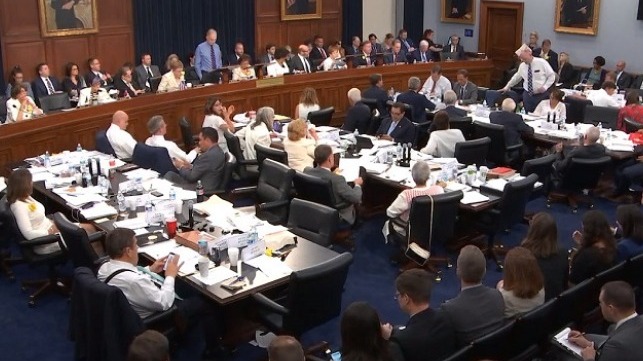NOIA: Offshore Wind Development Needlessly Stalled

The U.S. House Appropriations Committee has adopted language calling for a one-year Department of Defense study of the impact of offshore wind turbines, which allegedly "when arranged in large arrays may cause interference to radars and that vibrations generated by the operation of turbines may cause sonic interference to underwater sonar."
National Ocean Industries Association (NOIA) President Randall Luthi says the amendment to the House of Representatives Department of Defense Appropriations bill will needlessly stall the industry: "Today, the House Appropriations Committee adopted language to the FY20 Defense Department Appropriations Act that threatens to derail a growing domestic offshore wind industry. Some in Congress continue to seek to sow conflict between offshore energy development and military operations. Simply stated, we do not need more delays to once again study offshore wind, a renewable energy source which bolsters U.S. energy independence and enhances our national security.
“For decades, offshore wind developers and the U.S. military have worked in tandem with our NATO allies in the North Sea alongside offshore wind turbines. That same collaboration can happen in the United States if Congress will stop giving in to conspiracy theories suggesting that wind energy cannot coexist with other industries and military operations in the Outer Continental Shelf (OCS).
“America’s energy companies are on the cusp of major construction projects in the OCS. If this language is made law, those projects will be threatened and the jobs and energy security that construction brings will be needlessly delayed.”
The House Appropriations Committee approved the fiscal year 2020 Defense bill on a vote of 30 to 22 on May 21. The legislation funds the Department of Defense, including operations and maintenance, readiness activities, research and development, equipment modernization and health and quality-of-life programs for troops and military families. In total, the bill provides $690.2 billion in new discretionary spending authority for the Department of Defense, an increase of $15.8 billion above fiscal year 2019 and $8 billion below the request. This includes $622.1 billion in base funding, an increase of $15.6 billion above the fiscal year 2019 enacted level and $88.2 billion above the President’s request.
